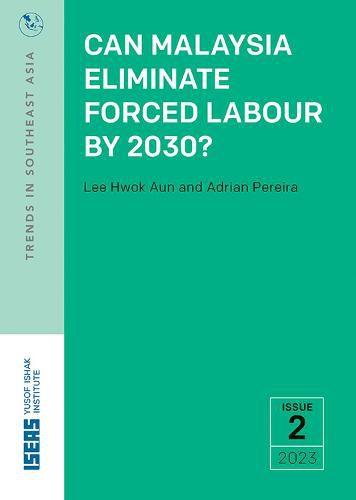Readings Newsletter
Become a Readings Member to make your shopping experience even easier.
Sign in or sign up for free!
You’re not far away from qualifying for FREE standard shipping within Australia
You’ve qualified for FREE standard shipping within Australia
The cart is loading…






Forced labour, encompassing various types of coercive practices and rights violations, is an entrenched problem in Malaysia. Recent years have seen more decisive and concerted efforts to resolve the problem and repair Malaysia's damaged reputation, but the country's forced labour woes escalated amid COVID-19, with exposes and trade embargoes in 2020-21.
Most consequentially, the US has imposed withhold release orders (WROs) on major rubber glove manufacturers and palm oil producers. For two consecutive years, 2021-22, Malaysia has occupied the lowest Tier 3 in the US Trafficking in Persons report. In November 2021, the country's National Action Plan on Forced Labour (NAPFL), formulated through tripartite engagements with the participation of the International Labour Organization, was launched, with the third National Action Plan on Trafficking in Persons (NAPTIP 3.0) operating in tandem.
The NAPFL outlines strategies and integrated measures for eventually eliminating forced labour by 2030, which requires systemic solutions commensurate with the magnitude of underlying problems. Forced labour has persisted despite the official termination of labour outsourcing and increased intergovernmental bilateral initiatives to better manage foreign worker flows.
Continual challenges in the labour supply industry and the administrative system, including the problematic overlapping powers of the Ministry of Home Affairs and Ministry of Human Resources, complicate the creation and implementation of a more just, effective and accountable migrant worker system.
Government-to-government (G2) agreements, through Memorandum of Understanding, have become the established platform, but are marred by inconsistency and lack of transparency.
The new government of Malaysia will need to address deep-seated issues and confront vested interests, domestically and in the labour source countries, to realize the aspiration of eliminating forced labour by 2030.
$9.00 standard shipping within Australia
FREE standard shipping within Australia for orders over $100.00
Express & International shipping calculated at checkout
Forced labour, encompassing various types of coercive practices and rights violations, is an entrenched problem in Malaysia. Recent years have seen more decisive and concerted efforts to resolve the problem and repair Malaysia's damaged reputation, but the country's forced labour woes escalated amid COVID-19, with exposes and trade embargoes in 2020-21.
Most consequentially, the US has imposed withhold release orders (WROs) on major rubber glove manufacturers and palm oil producers. For two consecutive years, 2021-22, Malaysia has occupied the lowest Tier 3 in the US Trafficking in Persons report. In November 2021, the country's National Action Plan on Forced Labour (NAPFL), formulated through tripartite engagements with the participation of the International Labour Organization, was launched, with the third National Action Plan on Trafficking in Persons (NAPTIP 3.0) operating in tandem.
The NAPFL outlines strategies and integrated measures for eventually eliminating forced labour by 2030, which requires systemic solutions commensurate with the magnitude of underlying problems. Forced labour has persisted despite the official termination of labour outsourcing and increased intergovernmental bilateral initiatives to better manage foreign worker flows.
Continual challenges in the labour supply industry and the administrative system, including the problematic overlapping powers of the Ministry of Home Affairs and Ministry of Human Resources, complicate the creation and implementation of a more just, effective and accountable migrant worker system.
Government-to-government (G2) agreements, through Memorandum of Understanding, have become the established platform, but are marred by inconsistency and lack of transparency.
The new government of Malaysia will need to address deep-seated issues and confront vested interests, domestically and in the labour source countries, to realize the aspiration of eliminating forced labour by 2030.